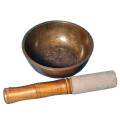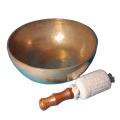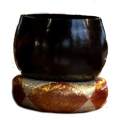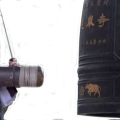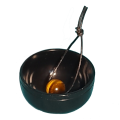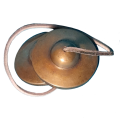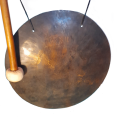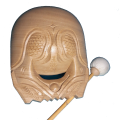The Four Nutriments

In The Heart of the Buddha’s Teaching , Thích Nhất Hạnh writes about the elements of the world that we take into us or allow into us. We don’t open our mouths to whatever fits into it: some things of the world taste bad, while others create cravings or addictions. There are many things that are poisonous to a human body.
In the same way, we can learn to care for our senses, and not consume everything that is offered. With a breath and a little attention, we can readily see what weakens our bodies and our minds; and also what helps us to be strong and stable and healthy.
We must be able to distinguish between what is healthful and what is harmful. We need to practice Right View when we shop, cook and eat. Much of our suffering comes from not eating mindfully. We have to learn ways to eat that preserve the health and well-being of our body and our spirit. When we smoke, drink or consume toxins, we are eating our own lungs, liver and heart. If we have children and do these things, [it is as though] we are eating our children’s flesh. Our children need us to be healthy and strong.
We have to look deeply to see how we grow our food, so we can eat in ways that preserve our collective well-being, minimize our suffering and the suffering of other species, and allow the earth to continue to be a source of life for all of us. If, while we eat, we destroy living beings or the environment, we are eating the flesh of our own sons and daughters. We need to look deeply together and sicusss how to eat, what to eat, and what to resist.
Our six sense organs — eyes, ears, nose, tongue, body, and mind — are in constant contact with sense objects, and these contacts become food for our consciousness. When we pick up a magazine [or browse the Internet], the articles and advertisements are food for our consciousness. Advertisements that stimulate our craving for possessions, sex and food can be toxic. If after reading the newspaper, hearing the news, or being in a conversation, we feel anxious or worn out, we know we have been in contact with toxins.
Children who spend five hours a day watching television [or online] are ingesting images that water the negative seeds of craving, fear, anger, and violence in them. We are exposed to so many forms, colors, sounds, smells, tastes, objects of touch and ideas that are toxic and rob our body and consciousness of their well-being. Not only children need to be protected from violent and unwholesome films, programming, books, magazines and games. We, too, can be destroyed by these media.
If we are mindful, we will know whether we are ingesting the toxins of fear, hatred, and violence, or eating foods that encourage understanding, compassion, and determination to help others.
Everyone wants to be happy, and there is a strong energy in us pushing us toward what we think will make us happy. But we may suffer a lot because of this. We need the insight that position, revenge, wealth, fame, or possessions are, more often than not, obstacles to our happiness. We need to cultivate the wish to be free of these things so we can enjoy the wonders of life that are always available — the blue sky, the trees, our beautiful children. After three months or six months of mindful sitting, mindful walking, and mindful looking, a deep vision of reality arises in us, and the capacity of being there, enjoying life in the present moment, liberates us from all impulses and brings us real happiness.
The Buddha advised us to look deeply into the nature of our volition to see whether it is pushing us in the direction of liberation, peace, and compassion or in the direction of suffering and unhappiness. We need to be able to see the kinds of intention-food that we are consuming.
